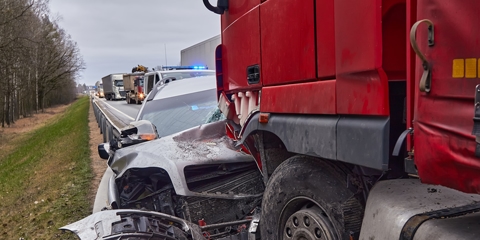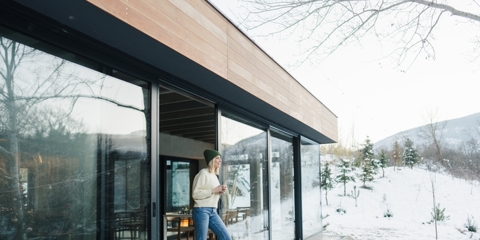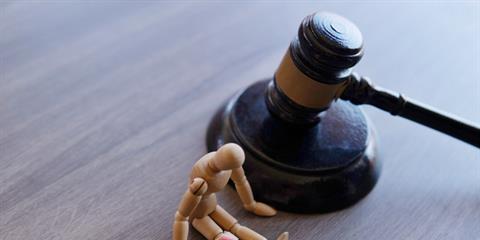Imagine walking down a poorly lit staircase and suddenly missing a step because you couldn't see clearly—or slipping on uneven stairs that the property owner never bothered to fix. These situations aren't just accidents waiting to happen; they can lead to serious injuries that disrupt your life and leave you with medical bills, time off work, and physical pain.
When property owners neglect their responsibility to maintain safe conditions, they put everyone at risk. If you’ve been injured due to unsafe staircases, poor lighting, or other dangerous conditions caused by property neglect, you may have the right to seek justice and compensation.
The Legal Responsibilities of Property Owners
Property owners are responsible for ensuring that their premises are reasonably safe for everyone who visits, whether it’s an apartment complex, business, or even a private home under certain circumstances. This legal obligation falls under what’s known as premises liability, which holds property owners accountable when their negligence leads to injuries.
Here’s what property owners are generally required to do:
Conduct Regular Inspections
Owners and landlords must routinely inspect their property to identify hazards like faulty stairs, broken railings, or dim lighting. Ignoring these checks can result in dangerous conditions that lead to accidents.
Fix Known Hazards Quickly
Once a hazard is identified—like a loose step or burnt-out lightbulb—the owner must fix it promptly. If repairs aren't feasible immediately, they should warn visitors of the danger by posting signs or blocking off the area.
Comply With Building Codes
Stairs, railings, and lighting must meet local building and safety codes. For example, staircases often require secure handrails, and lighting must be sufficient to prevent falls.
Maintain Outdoor Areas
Property owners are also responsible for staircases and walkways outside their buildings. They should address issues like uneven steps, poor lighting, and hazards caused by weather conditions, such as ice or water accumulation.
Failing to meet these responsibilities isn’t just careless; it’s negligent—and when negligence causes harm, it can lead to legal consequences.
Common Hazards That Lead to Accidents
Unsafe staircases and poor lighting are two of the most common examples of property neglect. Here’s how these hazards can cause accidents:
1. Broken or Loose Stairs
Steps that are cracked, wobbly, or have missing pieces create a serious tripping risk. A simple walk down the stairs can turn into a dangerous fall when staircases aren't structurally sound.
2. Lack of Handrails
Handrails are essential for stability, especially on steep or narrow staircases. If stairs lack handrails or the rails are broken, falling becomes much more likely.
3. Uneven Stair Heights
Not all stairs are created equal, but they should be uniform in height and depth. Uneven stairs can cause people to misstep, leading to injuries.
4. Poor or No Lighting
Dim or nonexistent lighting makes seeing hazards like cracks or obstacles difficult. This lack of visibility often contributes to falls, especially in unfamiliar areas like parking lots or apartment building stairwells.
5. Slippery Surfaces
If staircases aren’t cleaned, cleared of debris, or treated with nonslip materials, they can become hazardous, especially in rainy or icy weather.
6. Obstructions
Items like loose carpeting, clutter, or wires left on stairs are tripping hazards. Property owners are responsible for keeping staircases clear to ensure safe passage.
If you’ve experienced an injury in any of these conditions, it might not be just an unfortunate accident but a case of legal negligence.
What To Do If You’re Injured Due to Unsafe Conditions
Suffering an injury caused by unsafe stairs or poor lighting can be overwhelming, but there are steps you can take to protect yourself and your rights. Here’s what you should do:
1. Seek Medical Attention
Your health is the top priority. Get medical care for your injuries as soon as possible, and keep all your treatment records. This documentation is important for your recovery and serves as evidence if you decide to pursue legal action.
2. Document the Scene
Take photos or videos of the hazardous conditions that caused your injury if you can. Photograph broken stairs, poor lighting, or anything else that contributed to your accident. Also, note the date, time, and location of the incident.
3. Report the Incident
Notify the property owner or manager immediately. Ask for an incident report and keep a copy for your records. If the accident occurred on public property, consider notifying the local government department responsible for maintenance.
4. Gather Witness Information
If anyone saw your accident, collect their contact information. Witness accounts can strengthen your case by corroborating your version of events.
5. Consult a Premises Liability Attorney
Speaking with a lawyer who specializes in premises liability can help clarify your legal options. They can evaluate your case, negotiate with insurance companies, and represent you in court if necessary.
Why Holding Property Owners Accountable Matters
When property owners neglect their duty to maintain safe conditions, it’s not just personal harm—it’s a public safety issue. Holding negligent owners accountable does more than compensate you for your injuries; it creates a ripple effect that encourages better standards of care and prevents others from getting hurt in the future.
For example, successful premises liability claims often result in property owners making long-overdue repairs, installing better lighting, or implementing stricter maintenance schedules. By coming forward, you may prevent the same hazard from causing harm to someone else.
Premises Liability & Slip and Fall Attorney in Denver
By understanding the legal implications of property neglect and taking proactive measures to ensure safety, property owners can protect themselves from liability and create a safer environment for all. If you have been affected by property neglect, it is important to take action and seek the guidance of experienced legal professionals. Contact Denver Trial Lawyers® in Denver, CO, at (303) 647-9990 to learn more about how we can assist you in navigating the legal challenges of property neglect cases.






